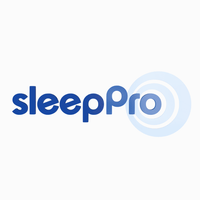When someone who snores discovers that they do not have obstructive sleep apnea (OSA), and simply snore heavily, the resulting feeling can understandably be one of great relief.

However for some patients, frustration and not relief is the dominant emotion. They remain alone in handling the complex problems spurred by their simple snoring such as their wife sleeping in a different room or not being able to go on a caravan camping trip with friends. They want advice.
Snoring and obstructive sleep apnea (OSA) are conditions that share similarities but have some differences. Both can be caused or made worse by factors such as obesity, aging, or a large tongue and tonsils. Both snoring and OSA can have negative effects on a person’s health, including lessening sleep quality and causing daytime sleepiness as well as causing weight gain, more rapid skin aging, and memory loss. These conditions can also lead to a greater risk of severe conditions such as heart attack, stroke, high blood pressure, diabetes, and certain cancers.
Historically there are longstanding home remedies for simple snoring (also known as primary or benign snoring) that sleep professionals have always recommended, such as weight loss, limiting night-time alcohol intake, and these still stand today.
However the medical viewpoint has now moved on to recommend the use of easy and inexpensive methods of snoring prevention such as using an oral appliance when sleeping at night. This helps snorers and snorers’ bed partners markedly improve their sleep and it also brings important health results along with it. These also work for those who suffer from OSA.
Snoring solutions are similar to apnea solutions. Anything that will open up the narrowed airway will help.
Good sleep is key to good health and in the UK this week we have been celebrating sleep and most of us have been getting plenty of it, but there are over 20 million of us in the UK that suffer from snoring and that’s not counting the millions who are affected by somebody else snoring.
Whilst it is a common condition, National Stop Snoring Week aims to raise awareness about the impact that sleep deprivation can have on the human body and general health. For many of us, a good night’s sleep is something that we could only wish for but is actually vital for our health.
An Omnibus study commissioned in 2015 found that over 45% of both snorers and their partners have mediocre or poor sleep quality whereas 63% of people from non-snoring homes have good or excellent sleep quality.
Partners of snorers wake up more often during the night (49% partner versus 31% snorer), feel more tired (46% partner versus 33% snorer), and are unhappier (18% partner versus 12% snorer) than the snorer. Most snorers (43%) say they try not to let snoring bother them but 20% admit to sleeping in a separate bedroom.1
The study found that 64% of American households are now dealing with at least one snorer and 50% are losing sleep because of it.
The effects of poor sleep are compounded with 18% forced to sleep in separate beds. In the United Kingdom, this figure has skyrocketed to 34% of people with snoring partners with 38% of women insisting on separate rooms.
For couples that suffer from their partners snoring, men are winning by enjoying better sleep quality than women (15% vs 9%). Women on the other hand reported poorer quality sleep due to a partner snoring (23% vs 16%).
The available solution is fast, inexpensive and vital to your health, so check out the NHS recommended oral appliances that are supplied by SleepPro, and are made in their laboratories here in the UK. Following extensive tests, the NHS recommends SleepPro as the first appliance to choose for the prevention of both snoring and obstructive sleep apnea.
John Redfern


